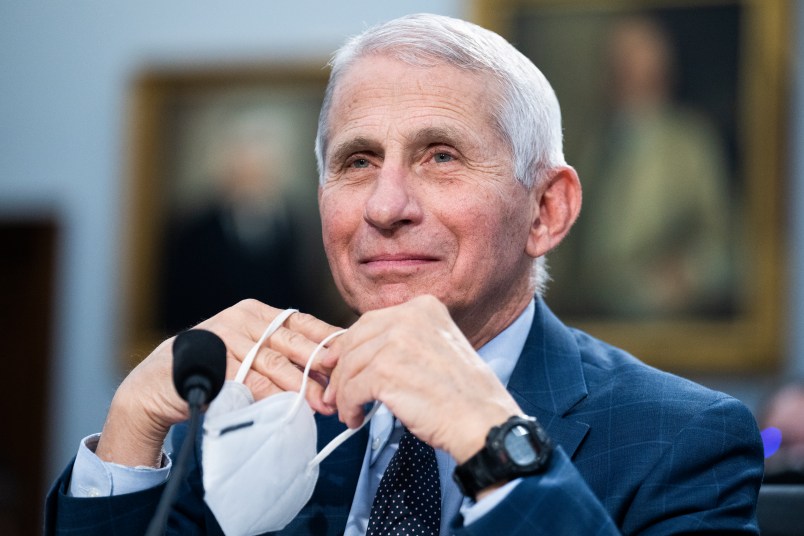Dr. Anthony Fauci, White House chief medical adviser and director of the National Institute of Allergy and Infectious Diseases, on Monday said he plans to step down from government service in December to “pursue the next chapter” of his career.
Fauci, who has led the NIAID for 38 years, told the New York Times in an interview Sunday evening that he was “not retiring in the classic sense.” Fauci said that his plans for the future include traveling, writing and encouraging young people to serve in the government.
“So long as I’m healthy, which I am, and I’m energetic, which I am, and I’m passionate, which I am, I want to do some things outside of the realm of the federal government,” Fauci told the Times, reportedly adding that he wanted to use his experience in public health and public service to “hopefully inspire the younger generation.”
In a statement on Monday, President Biden thanked Fauci for his long career, serving under seven Republican and Democratic presidents. The President noted that he began working closely with Fauci on the U.S. response to Zika and Ebola when he served as vice president.
Biden mentioned that one of his first calls as President-elect following the 2020 election was to Fauci, who he “immediately” asked to extend his service as chief medical adviser amid the COVID-19 pandemic.
“Because of Dr. Fauci’s many contributions to public health, lives here in the United States and around the world have been saved,” the President said. “As he leaves his position in the U.S. Government, I know the American people and the entire world will continue to benefit from Dr. Fauci’s expertise in whatever he does next.”
Fauci’s longtime career in public health service began in 1968 when he joined the National Institutes of Health during then-President Lyndon Johnson’s presidency. Fauci was later appointed to the director of its infectious disease branch in 1984 amid the AIDS epidemic.
Fauci has been an adviser to every president since Ronald Reagan, but became a household name during the COVID-19 pandemic. Fauci became a target of former President Trump and conservatives, who directed their ire over public health measures aimed at curbing the spread of COVID-19 at the nation’s top infectious disease specialist.
Fauci has not set a specific departure date, but told the Times that he plans to stay through the fall and into the early winter in the hopes that the country would “get closer to living with” the coronavirus “in a steady state.”
““I’m not happy about the fact that we still have 400 deaths per day,” Fauci told the Times. “We need to do much better than that. So I don’t think I can say that I’m satisfied with where we are. But I hope that over the next couple of months, things will improve.”



